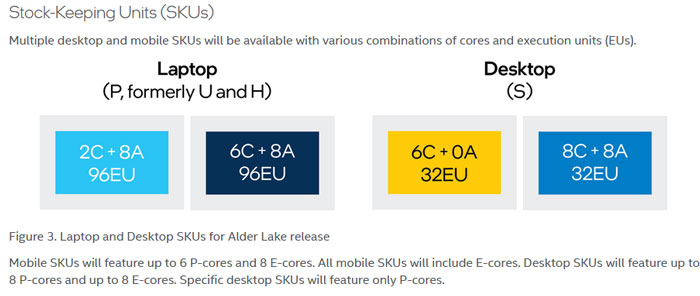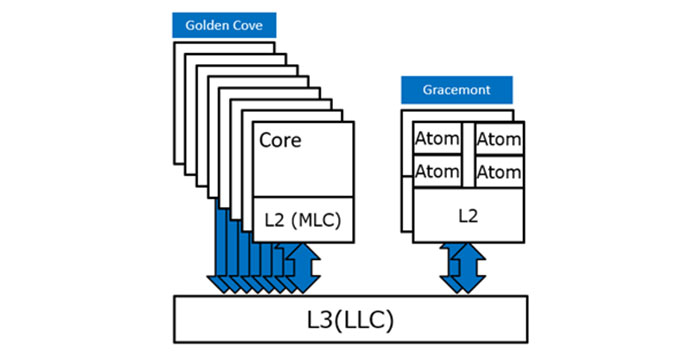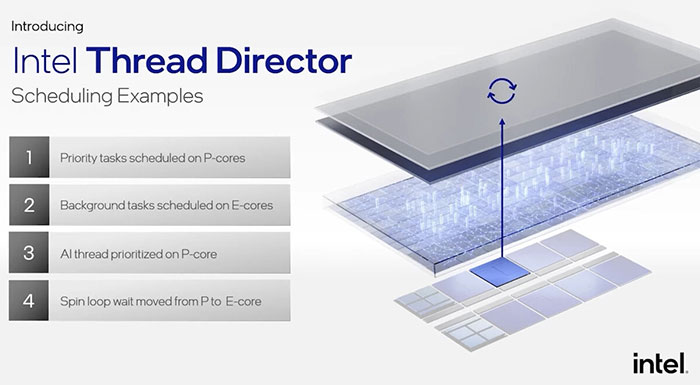Intel has published a developer guide for its upcoming 12th generation Core processors, codenamed Alder Lake. After a brief intro, the guide offers an architecture overview, talks about performance optimisations, making the most of the hybrid architecture, and provides some examples of optimisations for game engines. Within the documents, a few interesting nuggets have come to light; the upcoming ADL processor core configurations, and a warning about ADL game compatibility.

If you head on over to the linked microsite, and scroll down, you will quickly come across confirmation of the desktop and laptop SKUs that Intel has planned. Above you can see a summary diagram for the upcoming SKUs - with the desktop chips spanning processors which pack a minimum of 6 P-cores (Golden Cove), but lacking the E-cores (Gracemont Atom) entirely. They scale up to SKUs with 8 P-cores, and 8 E-cores.

Both types of cores have their own L1 and L2 caches but will share an L3 cache with each other. The docs suggest that the cores support the same instruction sets, but the E-cores won't have AVX-512 support. However, this weekend Anandtech's Dr Ian Cutress Tweeted that he had "confirmed AVX-512 not on ADL," – in any of the cores.
It looks like all but the 'F' suffixed desktop processors will come with 32 EUs for onboard graphics duties.

For software, Intel Thread Director will divide various tasks smartly between the different types of processor core available in your Windows 11 machine. It takes into account factors such as thread scheduling, thread priority, and thread affinity.
ADL - DRM issues incoming?
If you scroll down to the section of the dev guide dubbed 'next steps', to just above the 'additional resources' section, you will see Intel has added a cautious note about ADL and DRM. "If your existing or upcoming game uses a DRM middleware, you might want to contact the middleware provider and confirm that it supports hybrid architectures in general, and the upcoming Intel ADL platform in particular," says the guide. "Due to the nature of modern DRM algorithms, it might use CPU detection, and should be aware of the upcoming hybrid platforms. Intel is working with leading DRM providers such as Denuvo* to make sure their solutions support new platforms."
This effort, by developers of modern currently in service games, will probably be quite swift. However, there are plenty of older titles that still have DRM, and getting updates for them, to make them work on ADL systems, might not be so easy. Intel specifically names Denuvo as being a potential problem, but it isn't likely to be the only DRM system that could foul-up older game enjoyment on hybrid architecture processors.






